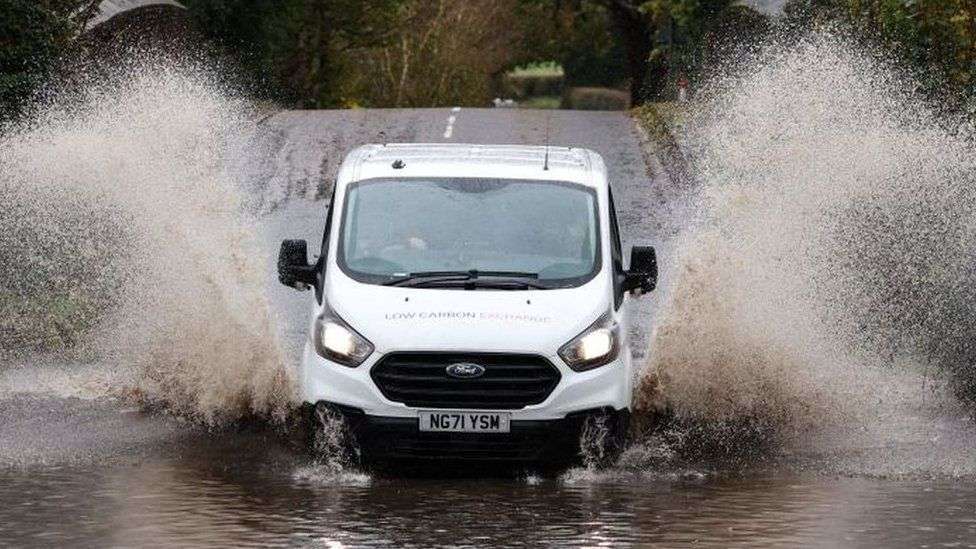Drivers have been warned of potentially hazardous conditions as Storm Gerrit hits the country on Wednesday.
The storm is expected to be felt across the UK, with a number of yellow wind and rain warnings in place.
The Met Office has chosen to name the storm as it is expected to be a busy day on the roads, with people returning home after Christmas.
People should expect journeys to take longer than normal in the hazardous conditions, the AA has warned.
The storm is expected to hit the UK from the west early on Wednesday, moving up through the country throughout the day.
Yellow warnings for wind are in place across the southern coast of England, in north-west England and Wales, much of Scotland and Northern Ireland.
Met Office meteorologist Simon Partridge said wind warning areas can expect gusts of 50-60mph, with up to 70mph on high ground and exposed coasts.
He said only the central section of the UK does not have a wind warning.
Heavy rain is expected in some areas as well, with an estimated 60mm falling in parts of Northern Ireland, and up to 90mm on higher ground in Wales.
"In terms of rain, we have rain warnings out for the whole of Northern Ireland, western Wales, north-west England, and then there's a combined sort of rain and snow warning for Scotland," Mr Partridge said.
Wintry weather is expected too, with a yellow warning for snow covering much of Scotland.
Storm Gerrit is the seventh named storm of the current UK storm season, which started in September and runs until August next year.
It is the earliest point in the season that a storm has been named with the letter G since the system for naming storms started in 2015.
The weather system comes days after Storm Pia coincided with strike action to bring misery to thousands of people trying to get away for the holidays.
Lorries were tipped over, trees smashed into houses, and power line damage hit rail services across the country.
Pia was named by the Danish Met Office, and caused significant upset in Denmark.
The AA urged those travelling on Wednesday to leave a bigger gap to the vehicle in front, as the wet weather could increase how long it takes a car to brake.
It also warned drivers that high winds can hit cars suddenly in exposed areas.








